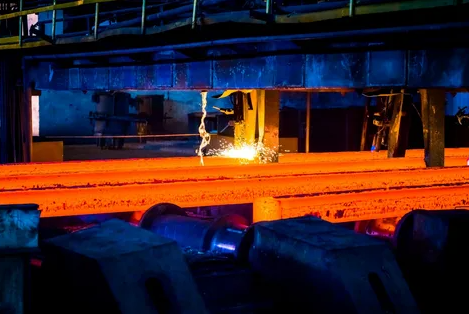Most of the Australian coal used by steelmakers and stored in Chinese ports after Beijing's import ban has now been cleared, according to research firm Fengkuang Coal Logistics, although there is no indication that the halt to new shipments will be lifted.
Customs data from the last quarter of last year shows that 6.2m tonnes of Australian coking coal has finally been cleared, as well as another 5.5m tonnes of thermal coal from former trading partner China destined for power plants.
It is not clear how much coal has been frozen overall since Beijing stopped importing Australia at the end of 2020 as political ties with Canberra soured. However, customs figures are close to industry estimates of the amount of coal that has been in limbo, and in any case, it is highly likely that China's autumn energy crisis has swallowed up much of the thermal coal also stored in its ports.
The Chinese Customs Administration did not immediately return calls asking for comment.
But that's not quite the end of a saga in which dozens of carriers have been piled up off the coast of China for months, trapped between authorities who won't let them unload and buyers who won't let them leave. The resulting Australian coal ban has produced some unlikely winners.
China does not produce enough high quality coking coal and has long been dependent on Australian mines. But measures to combat the pandemic have choked the flow of supplies from neighboring Mongolia, another major supplier, leaving exporters in the US and Canada — countries unlikely to favor Beijing — to make up for the slack.
While China's total coking coal purchases fell by about a quarter to 55 million tons last year, the amount coming from the US has risen nearly 10-fold and accounts for almost 20% of China's imports, according to Fengkuang. Meanwhile, Canadian shipments have doubled to almost the same share.
Whether the Australian fuel ban continues and the impact of the pandemic on Mongolian supplies means "the market for coking coal imports in 2022 remains highly uncertain," Fengkuang said.
China's needs this year will depend on demand from the steel industry, which in turn will depend on whether Beijing continues to push for production cuts to meet its carbon targets, as well as the extent to which spending on infrastructure will be used to support slowing economic growth.
Subscribe to news 
Metallurgy news
- Today
09:00 09:00 - 02 March 2026
21:00 Japan's steel exports down 8.2% in January 2026 20:00 EUROMETAL Southern Europe Meeting 2026: European industry between regulatory uncertainty and finding a new balance 20:00 Indian IMFA completes acquisition of Tata Steel limited's ferrochrome plant in Odisha 19:00 Producer prices in French industry rose 0.5 percent in January compared to December 19:00 Indian NMDC limited forecasts iron ore production to grow by 16% in February 2026 18:00 Rig count decline in US and Canada - Week 9, 2026
Publications
02.03 Turnkey production of energy-efficient booths 02.03 Selling commercial carpet: features and benefits 02.03 The Quiet Power of Hope, Laughter, and listening to Your Heart 01.03 Lead-acid batteries in 2026: a new choice for business and home 15.02 Modern platform for online entertainment On X Casino






